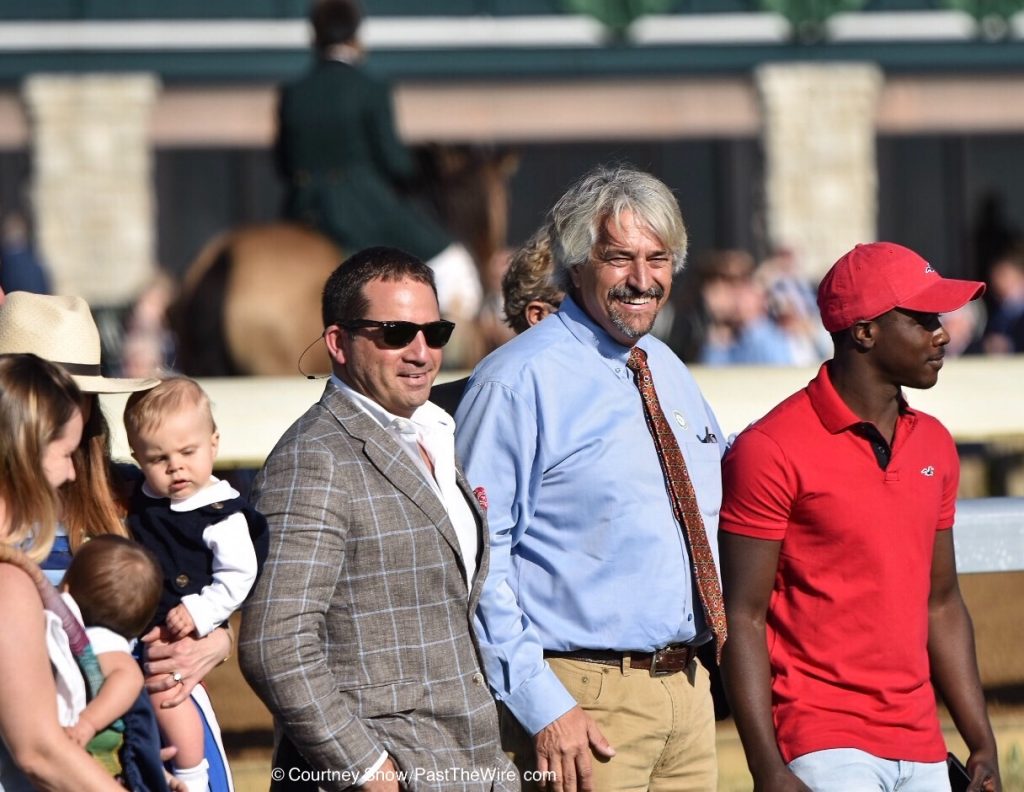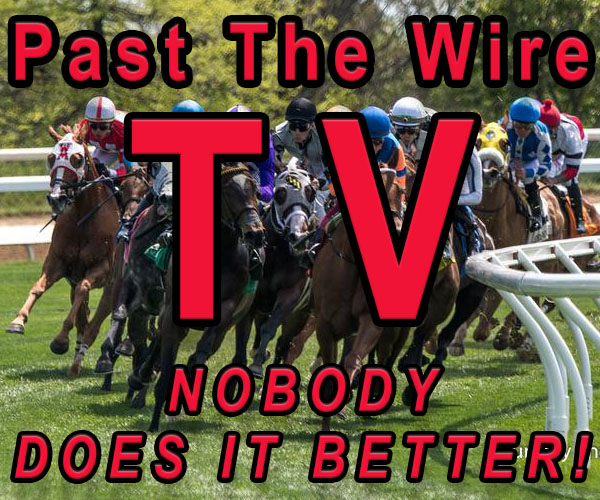
Have you ever asked yourself why one trainer is better than the other? There are many things that make one better than the other. It all starts with who they came up under or who taught them. Certainly the better the teacher, you would think better the students. Not always true, the students really need to want to learn. The hours are long and the pay never seem to equal the amount of time invested.
Training horses has not changed much since the beginning. People have changed, they all want instant gratification,. Not going to happen in training. The old saying the harder you work, the more you make or learn. Well I’ll say this… you will learn, but the money end not so much. Knowledge is money! It’s hard to put a price on knowledge. To this day I’m still learning.
The thing I had going for me was that I was born into horses. My father had them, not as a trainer but as an owner. So at a very young age, I was going to the race track in the morning. I have always been a guy who had big eyes and a lot of questions. I have found that is good and bad…but it is what it is.
To be a good trainer I found out over the years you have to think like a horse. You’re asking yourself, how do you think like a horse? It’s something you learn. The quicker you learn, the better a trainer you will be. That takes time and patience. Remember those two words because if you don’t have time or patience, find another vocation in life, horses aren’t for you.
A good trainer won’t let things fall through the cracks. A bad trainer, I hate to use that word, does. You have to know your horses, they are all different. The quicker you learn that, the easier it gets. Horses talk to you in their own way. You have to take the time out to listen by watching. Horses are creatures of habit, just like humans, they just can’t talk. But they tell you in their own way .
What I mean about falling through the cracks is, the little things that if you don’t pay attention turn into big things. You constantly have to monitor their legs, eating habits, feet and color of their coat. They are all things that tell you how your horse is doing internally. If they’re not doing well, there is a reason, you as a trainer have to figure it out. I don’t care if you have 1 or 100 horses, each one is an individual and you better know them.
A trainer is like a coach, he knows who he has to get after and who he has to back off of. Like any coach, you need good assistant coaches. In our case foremen and assistant trainers. If they are not on the same page with you get rid of them. Let’s face it, you’re only as good as your help in any business. More so when it comes to horses.
As a trainer, your clients entrust you with their horses to get the best out of them. As competitive a sport as it is, there is no room for error. So if you don’t pay attention to detail, bad things are going to happen. If you’re a good caretaker that’s great and it helps. But it’s just part of the puzzle along with their training. As a trainer you have to touch every base every day. The day you don’t, that’s when things start to go wrong.
This is a business where you are judged on winning not anything else. I don’t care what other trainers say. You can’t ever win too much! All trainers have their own way of doing things, just as long as they’re doing it correctly.
In closing, if you don’t have good stock and run them in the correct races, you won’t be around long. The worst thing you can say about a trainer is.. he does not WIN. See you at the races.



